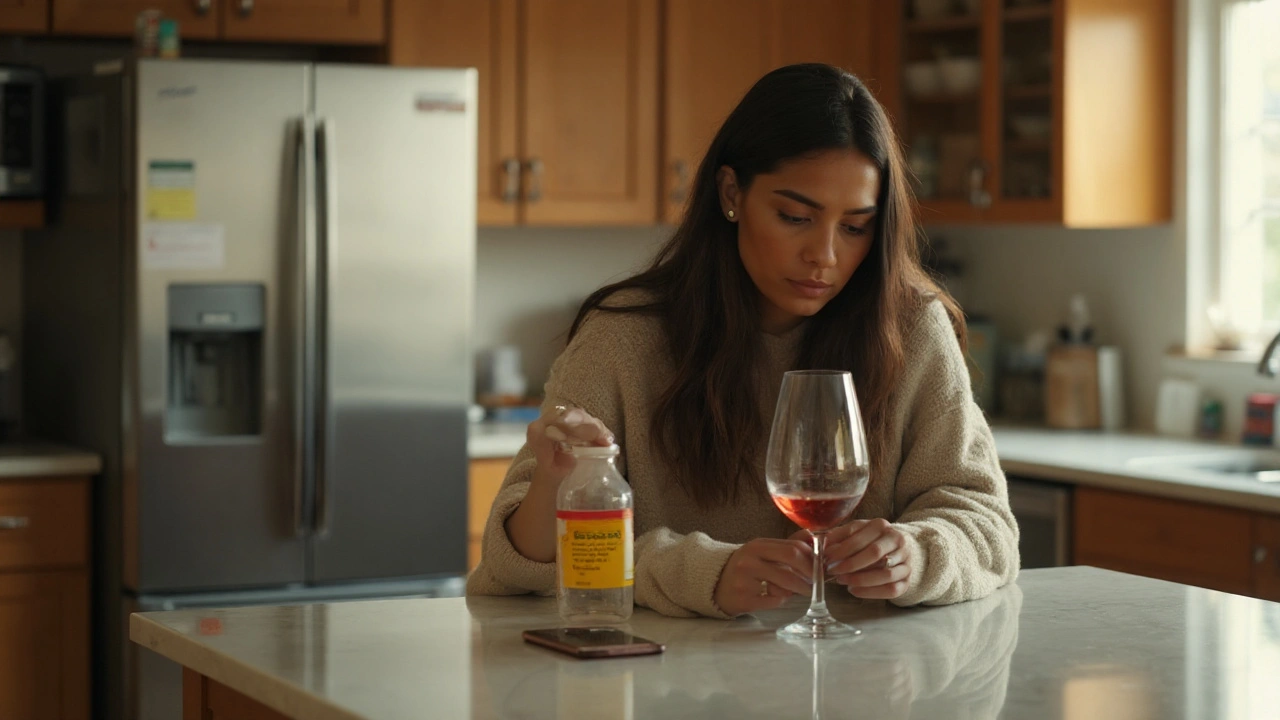Mixing Alcohol with Meds: What Happens and How to Stay Safe
Ever wondered what a glass of wine will do to your prescription? It’s a question many ask after a long day, but the answer isn’t simple. Alcohol and medication each affect the brain, liver, and heart, and when they meet, the results can range from a mild headache to a life‑threatening emergency. Below we break down the most common risks, why they matter, and what you can do to protect yourself.
Why Mixing Can Be Dangerous
First off, alcohol is a depressant. It slows down the central nervous system (CNS) and can amplify the sedative effect of many drugs. Think about sleeping pills, anti‑anxiety meds, or certain painkillers – combine those with a few drinks and you might feel unusually drowsy, have trouble breathing, or even lose coordination.
Second, the liver is the body’s processing plant. Both alcohol and many medications need liver enzymes to break down. When you pour alcohol into the mix, those enzymes get tied up, leaving the drug in your bloodstream longer than intended. This can increase side‑effects, cause toxicity, or make the medication less effective. For example, acetaminophen (found in Tylenol) combined with alcohol raises the risk of serious liver damage.
Third, some drugs change how alcohol is absorbed. Certain antibiotics, like metronidazole, can cause a sudden flushing, rapid heart beat, and nausea if you drink. This reaction, often called a "disulfiram‑like" effect, is uncomfortable enough to deter you from drinking while on the prescription.
Lastly, alcohol can mask symptoms. If a medication is supposed to help you notice pain, dizziness, or shortness of breath, alcohol might dull those signals, making it harder to catch a problem early.
How to Manage Your Medications Safely
Start with the label. Most prescription bottles have a clear warning about alcohol. If it says "Avoid alcohol" or "Do not consume alcoholic beverages," take it seriously. Even “use with caution” is a cue to limit intake.
Ask your doctor or pharmacist. A quick chat can reveal whether a specific drug has a high‑risk interaction. Bring a list of all the medicines you take, including over‑the‑counter pills and herbal supplements. Sometimes a simple switch to a different antibiotic or pain reliever can eliminate the danger.
Set a personal rule. If you’re on a medication known to interact, decide ahead of time to skip alcohol completely for the entire course. For meds with a milder warning, consider limiting yourself to one low‑alcohol drink a day and never on an empty stomach.
Watch for warning signs. If you feel unusually sleepy, dizzy, have a pounding heart, or notice stomach pain after drinking while on medication, stop the alcohol and contact a healthcare professional. Early detection can prevent a serious issue.Plan ahead for social events. If you know you’ll be at a party, bring a non‑alcoholic beverage you enjoy, or let a friend know your medication schedule so they can help you stay on track.
Remember, the safest combination is often none at all. Skipping that extra beer or cocktail while you’re on a prescription might feel like a sacrifice, but it protects your health, keeps your medication working, and avoids costly trips to the ER.
Bottom line: Alcohol can turn a routine prescription into a risky experiment. By reading labels, asking professionals, and setting clear personal limits, you can enjoy social occasions without jeopardizing your health.
Medications and Alcohol: Safe Mixes, Dangerous Combos, and What to Do (2025 Guide)
Can you drink on your meds? Clear, evidence-backed rules, risk-by-drug tables, and step-by-steps so you know what’s safe, what’s not, and how to handle slip-ups.
Keanu Rutherford | Sep, 10 2025 Read More
